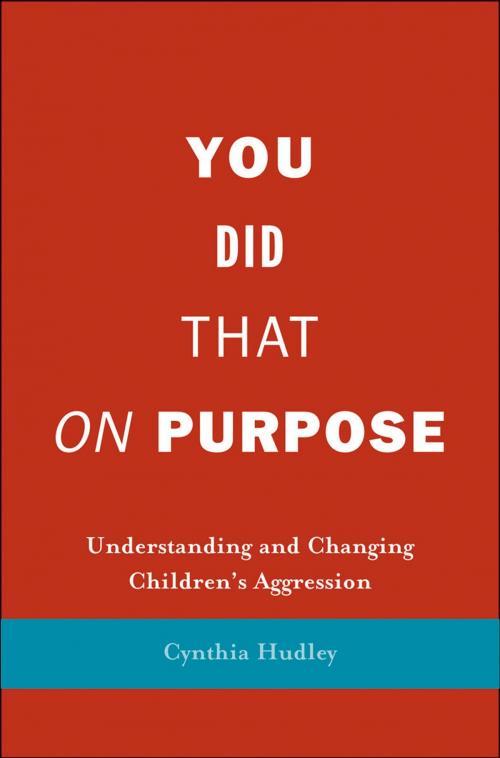You Did That on Purpose
Understanding and Changing Children's Aggression
Nonfiction, Reference & Language, Education & Teaching, Educational Theory, Educational Psychology, Health & Well Being, Psychology, Child & Adolescent, Child Development| Author: | Professor Cynthia Hudley | ISBN: | 9780300151756 |
| Publisher: | Yale University Press | Publication: | October 1, 2008 |
| Imprint: | Yale University Press | Language: | English |
| Author: | Professor Cynthia Hudley |
| ISBN: | 9780300151756 |
| Publisher: | Yale University Press |
| Publication: | October 1, 2008 |
| Imprint: | Yale University Press |
| Language: | English |
Some children are prone to a particular kind of aggression when they are with their peers. For these children, any harm done to them-even something as inconsequential as a jostle in the lunch line-is perceived as intentional. Their style of social information processing, termed hostile attributional bias,” increases the likelihood of retaliating with excessive and inappropriate physical aggression. In this valuable book, parents and professionals who work with children will learn what can be done to better understand and control children’s aggression.
Beginning with a reader-friendly review of the literature, Cynthia Hudley underscores the substantial risks of long-term problems for elementary-school-age children who demonstrate aggressive behavior. Then, drawing on her work as founder of a successful school intervention program, the BrainPower Program, Hudley describes methods for reducing children’s peer-directed aggression. She concludes with a discussion of the importance of broad social contexts in supporting nonaggressive behavior.
Some children are prone to a particular kind of aggression when they are with their peers. For these children, any harm done to them-even something as inconsequential as a jostle in the lunch line-is perceived as intentional. Their style of social information processing, termed hostile attributional bias,” increases the likelihood of retaliating with excessive and inappropriate physical aggression. In this valuable book, parents and professionals who work with children will learn what can be done to better understand and control children’s aggression.
Beginning with a reader-friendly review of the literature, Cynthia Hudley underscores the substantial risks of long-term problems for elementary-school-age children who demonstrate aggressive behavior. Then, drawing on her work as founder of a successful school intervention program, the BrainPower Program, Hudley describes methods for reducing children’s peer-directed aggression. She concludes with a discussion of the importance of broad social contexts in supporting nonaggressive behavior.















